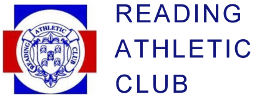Relative Energy Deficiency in Sports (or RED-S) has been in the news a lot recently with several well known athletes, including our own Anna Boniface, sharing their experiences of the devastating health consequences of not taking in enough nutritional energy to match training loads. The endurance coaches at Reading AC have started an initiative at the club with the aim of preventing any more serious cases. Part of this is to make sure all athletes and parents are aware of the problem and the warning signs to spot it early.
About RED-S: RED-S can affect both males and females and at any age. It is a serious problem that can lead to long term health problems with bone density, cardiovascular health, growth and development. It also has psychological effects and depresses the immune system. It is much easier to treat if spotted early.
RED-S can be both conscious and unconscious. Unconscious RED-S just means an increase in training load without realizing that food intake needs to increase and this is easy to fix once the athlete is aware of the problem. This can quite easily happen if training is suddenly increased due to training for a longer race or bringing in other sports, such as triathlon training. If this is the case they need to eat more, especially carbs!
The conscious low energy intake is far more complicated and has both a physical and mental side to the problem. As a lot of the mental traits that cause RED-S (being goal focused, commitment etc) are also traits that are found in successful athletes, the signals listed below do not necessarily mean someone has RED-S. They are just signs that they could be susceptible.
1. An athlete is overly anxious about how they perform in training and races.
2. They always compare themselves with others, rather than looking at what they can and have improved.
3. Having non-medically diagnosed diet restrictions.
4. Not enjoying food, but just seeing it as fuel.
5. No interests outside of running.
6. Having an addictive personality.
7. Previously having suffered from eating disorders.
8. Having negative, intrusive thoughts like ‘ The training I have been given is not enough’, ‘If I lose weight I will be quicker’.
Warning Signs that indicate an athlete is starting to suffer from RED-S would be the following:
1. An obsessive relationship with exercise and/or food.
2. Sleep problems.
3. Digestive problems.
4. Poor decision making.
5. Recurring illness and injury.
6. Initial weight loss, but then it may stabilize as the body slows down energy systems.
7. A decrease in athletics performance, which may follow an initial increase.
8. Mood changes and becoming withdrawn.
9. Loss of periods in females not pregnant or breast feeding, or periods not having started by age 16. Any female athlete whose periods stop for 6 months (secondary Amenorrhoea) or whose periods haven’t started by age 16, should get this checked by a medical professional. There are other reasons why this can occur that need to be ruled out.
10. For male athletes the most obvious warning is a stress fracture. Any male athlete who suffers a stress fracture should get a blood test to check for any hormonal imbalances. There are other reasons why this can occur, but stress fractures are quite rare in healthy males.
If your GP is not aware of RED-S then do contact one of the club RED-S officers listed below for information on specialists in this field. You can also talk in confidence with the club RED-S officers about any concerns you have or with the coach concerned. If you are worried that an athlete (or yourself) may be showing signs of RED-s, please share your concerns so we can take action early.
What else can parents do?
Make sure you recognize effort and improvements, rather than race results.
Ensure they have a snack for immediately after training (e.g. cereal bar, chocolate milk, sandwich).
Ensure that they spend some free time on interests other than running.
Talk to them about cases in the news of RED-S.
Useful resources: Club RED-S officers: Anna Boniface (athlete who has experienced RED-S): annaboniface@hotmail.co.uk 07879992312 , Aaron Baker (Welfare and Child Protection): aaronb1985@outlook.com 07999793711, Julie Rayfield (coach): julierayfield@mac.com 01189483901
Helpful websites: www.health4performance.co.uk
https://www.fastrunning.com/fast-10/2018/anna-boniface/anna-boniface-break-breakthrough/11118
The most important point to share is that for an athlete to reach their full potential their body must have adequate fuel to recover, grow stronger and faster.


